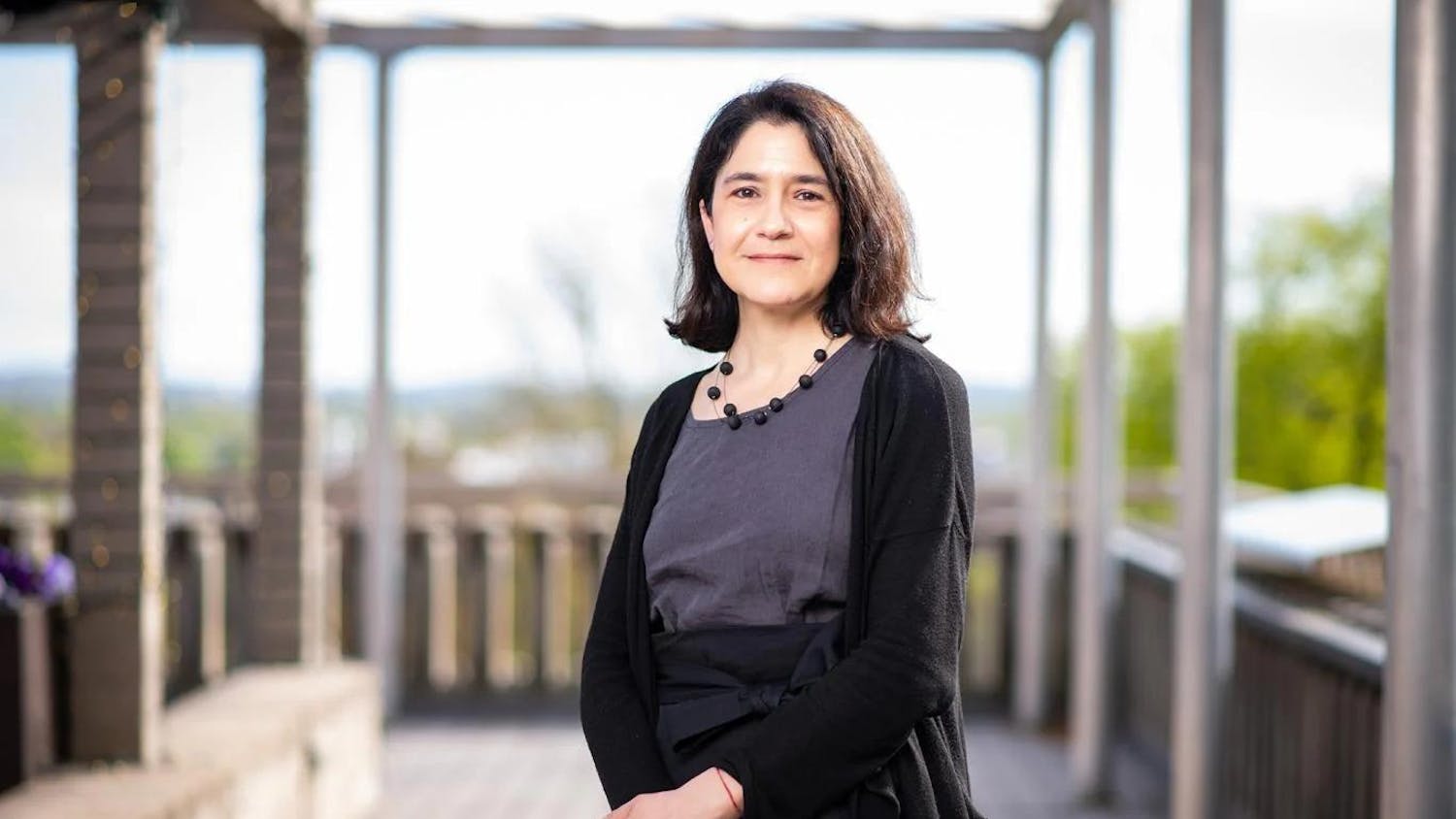Two Tufts professors delivered their last lectures to the university yesterday evening, or so they were told.
During the second-annual Last Lecture event, Professor of Associate Electrical and Computer Engineering Denis Fermental (A '58) and Political Science Professor Robert Devigne offered reflections on their lives to a packed audience in Alumnae Lounge.
They centered their remarks around the question, "If you knew this was the last lecture you would ever give, what would you share with students and colleagues?"
"Upon initially hearing that I was going to die in nine days and that I would have to give a last lecture, my initial response was to look to the heavens and say, 'If my students told you that I said God was dead, they were lying,'" Devigne, the chair of the political science department, said. "Or, Nietzsche made me do it."
The lecture series is based on a speech given by acclaimed Carnegie Mellon professor Randy Pausch, who was terminally ill in September 2007 when he delivered his last-ever lecture, which was on the topic of achieving childhood dreams. Pausch passed away from pancreatic cancer last July.
The two Tufts professors who spoke yesterday were chosen after receiving the greatest number of nominations from the senior class.
"It is appropriate to call this the Last Lecture because it is directed primarily to the Class of [2009]," Devigne said. "It's the end of the beginning ... The preparation is over; you have been founded."
Fermental, speaking first, started with lessons steeped in history and humor. He talked about the difficulties faced by Thomas Edison and Alexander Graham Bell as a way to motivate students to be open-minded in their quest for knowledge and achievement.
"You have to move on; you can't be so settled in your learning," he said. "You really have to think when you look around that [there are] answers out there that may not be your answers. Someone else might have a better idea."
Fermental also shared the story of how he became a Tufts professor through an unintended path. After graduating from Tufts, he initially planned to partake in a two-year army officer program in the United States, but instead the Army sent him to teach courses on radar in Germany, an experience that he described as the beginning of his professional life.
Fermental then returned to Tufts, where he was asked to teach on campus and assist in a project involving photographing the Soviet Union from high-flying balloons.
"The first year didn't go too well -- too much teaching, not enough research -- but things worked out eventually ... so I stayed," he said. "[So] years later, here I am giving the Last Lecture. Who would have known?"
Fermental used the examples from his life path and of his surprise at being asked to deliver the lecture as a way to show students that they cannot predetermine their futures.
"You don't really have control of how your life will go," he said. "The fates control what's going to happen to you."
Devigne touched on this point as well in his speech, but he urged students to have more control over their lives as they make the transition out of Tufts.
He attempted to create a bridge linking what he considered to be a disconnect between a liberal arts education and the demands of life after college, when students become increasingly focused on jobs, family and children.
"How do we get over this divorce and disconnection between this life of commitments and the liberal arts education?" Devigne asked. "Does it mean every time a war breaks out, we should e-mail Professor [Richard] Eichenberg or Professor [Jeffrey] Taliaferro to find out how to think about this?
"Most fundamentally, when many of you have children and you start thinking about whether you should have a religious ceremony for them ... do you call me up or [Professor Vickie] Sullivan and ask what Machiavelli or Nietzsche [would do]?"
In response, he urged students to utilize what they have learned to break through the challenges they will face as adults.
"Attain a degree of self-command, where you are in charge of your commitments and your commitments are not in charge of you," he said.
The concept of the Last Lecture had a particularly compelling significance for Devigne, whose brother was recently struck with serious illness. As Devigne considered the lasting words of his family members who have passed away, he was taken aback by the focus of their reflections.
Rather than focusing on themselves, he said, they reflected on the people around them.
"It's not about me; it's a great honor to receive this accolade from the senior class," he said. "I fear that I could sound ungrateful ... [but] the life of a university, and Tufts in particular, has meant everything to me and my family."





